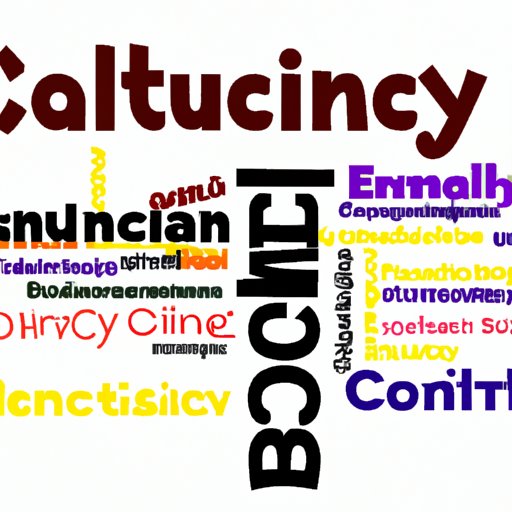Introduction
Culture plays an integral role in shaping our identities. It influences how we view ourselves and the world around us, and is one of the primary drivers of identity formation. But what exactly is culture, and how does it shape our identity? In this article, we’ll explore the answer to these questions by examining the impact of cultural norms, family dynamics, language, religion, media and education on identity formation.

Examining the Influence of Cultural Norms on Identity Formation
Cultural norms are the shared standards of behavior that are accepted and expected in a particular group or society. These norms can vary widely across different cultures and societies, but they all have a profound impact on identity formation. By adhering to certain norms, individuals are able to develop an understanding of who they are and how they fit into their society.
For example, in some cultures it is expected that men will be the breadwinners and women will stay at home to take care of the children. This expectation can shape an individual’s identity by influencing their perception of themselves and how others perceive them. Individuals may also feel pressure to conform to certain norms in order to fit in with their peers and be accepted by their community.
An Exploration of How Family Dynamics Shape an Individual’s Identity
Family dynamics are another key factor in identity formation. Family relationships play a major role in how individuals view themselves and the world around them. The love, support, and guidance provided by parents and other family members can help to foster a sense of self-worth and confidence that can shape an individual’s identity.
Family dynamics can also have a negative impact on identity formation. Dysfunctional family relationships can lead to feelings of insecurity, low self-esteem, and a lack of trust in others. This can cause individuals to struggle with forming strong connections with others and developing a positive sense of self.

Comparing and Contrasting Traditional Versus Modern Values in Terms of Identity Formation
Traditional and modern values can also have a significant impact on identity formation. Traditional values tend to emphasize respect for authority, obedience to rules, and conformity to societal expectations. On the other hand, modern values focus on individual autonomy, freedom of expression, and self-determination.
The type of values an individual holds can shape their identity in a variety of ways. For instance, those with traditional values may be more likely to view themselves as part of a larger group, while those with modern values may be more likely to prioritize their own individual needs and desires. Both types of values can be beneficial in helping individuals form a strong sense of self, but it is important to recognize the differences between them.

Investigating the Impact of Language on Identity Construction
Language is another key factor in identity formation. The way an individual speaks and communicates can reveal a great deal about their culture, background, and beliefs. It can also help to shape an individual’s identity by providing them with a means of expressing their thoughts and feelings.
For example, an individual who speaks multiple languages may identify more strongly with the cultures associated with each language. Similarly, an individual who speaks a dialect may use it to signal their membership in a certain group or community. Language can therefore be a powerful tool for constructing and expressing identity.
Analyzing the Roles of Religion and Spirituality in Identity Development
Religion and spirituality can also have a major impact on identity formation. Religion provides individuals with a set of beliefs and values that can shape their worldview and guide their behavior. Similarly, spirituality can provide individuals with a sense of purpose and connection to something greater than themselves.
Both religion and spirituality can help individuals develop a sense of identity by providing them with a foundation of values and beliefs that they can draw upon to make decisions and navigate life’s challenges. Furthermore, religious and spiritual communities can create a sense of belonging and provide individuals with a source of strength and support.
Exploring the Role of Media in Constructing Identity
Media is another important factor in identity formation. The images, stories, and messages presented in the media can have a powerful influence on how individuals view themselves and the world around them. Through the media, individuals are exposed to a wide range of ideas and perspectives, which can shape their identity in both positive and negative ways.
For example, media can reinforce traditional gender roles and stereotypes, or it can challenge them and open up new possibilities for identity formation. Similarly, media can present positive or negative images of different races, religions, and cultures, which can either affirm or undermine an individual’s sense of identity.
Examining the Role of Education in Forming Personal Identity
Finally, education plays an important role in identity formation. Through education, individuals gain knowledge and skills that can help them develop a sense of self-worth and confidence. Education can also broaden an individual’s perspective and open up new possibilities for identity exploration.
For example, an individual who pursues higher education may gain an understanding of different cultures and beliefs, which can shape their identity. Similarly, learning a foreign language can help individuals connect with other cultures and deepen their understanding of their own identity.
Conclusion
In conclusion, culture has a profound impact on identity formation. From the cultural norms we learn from our families and communities to the values and beliefs we acquire through education and media, culture shapes our identities in countless ways. It is therefore essential that we take the time to understand and appreciate the various influences that shape our identities.
(Note: Is this article not meeting your expectations? Do you have knowledge or insights to share? Unlock new opportunities and expand your reach by joining our authors team. Click Registration to join us and share your expertise with our readers.)
